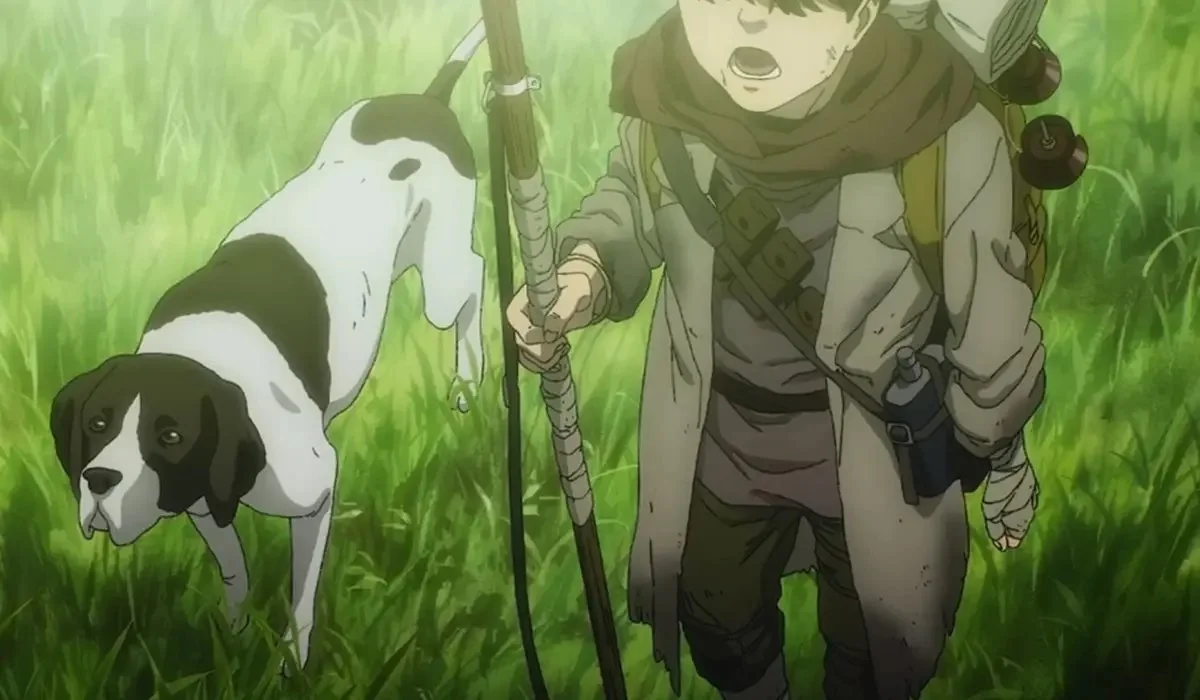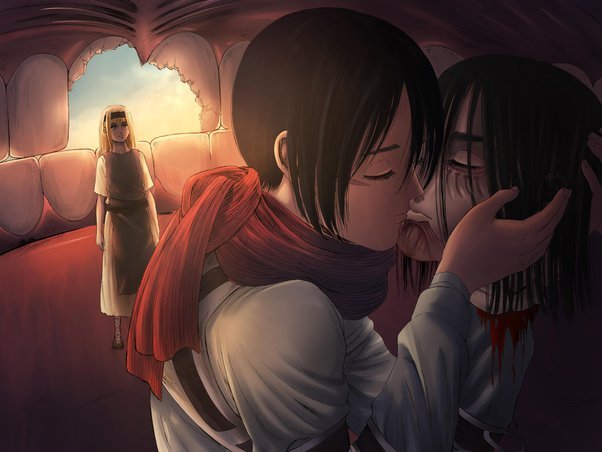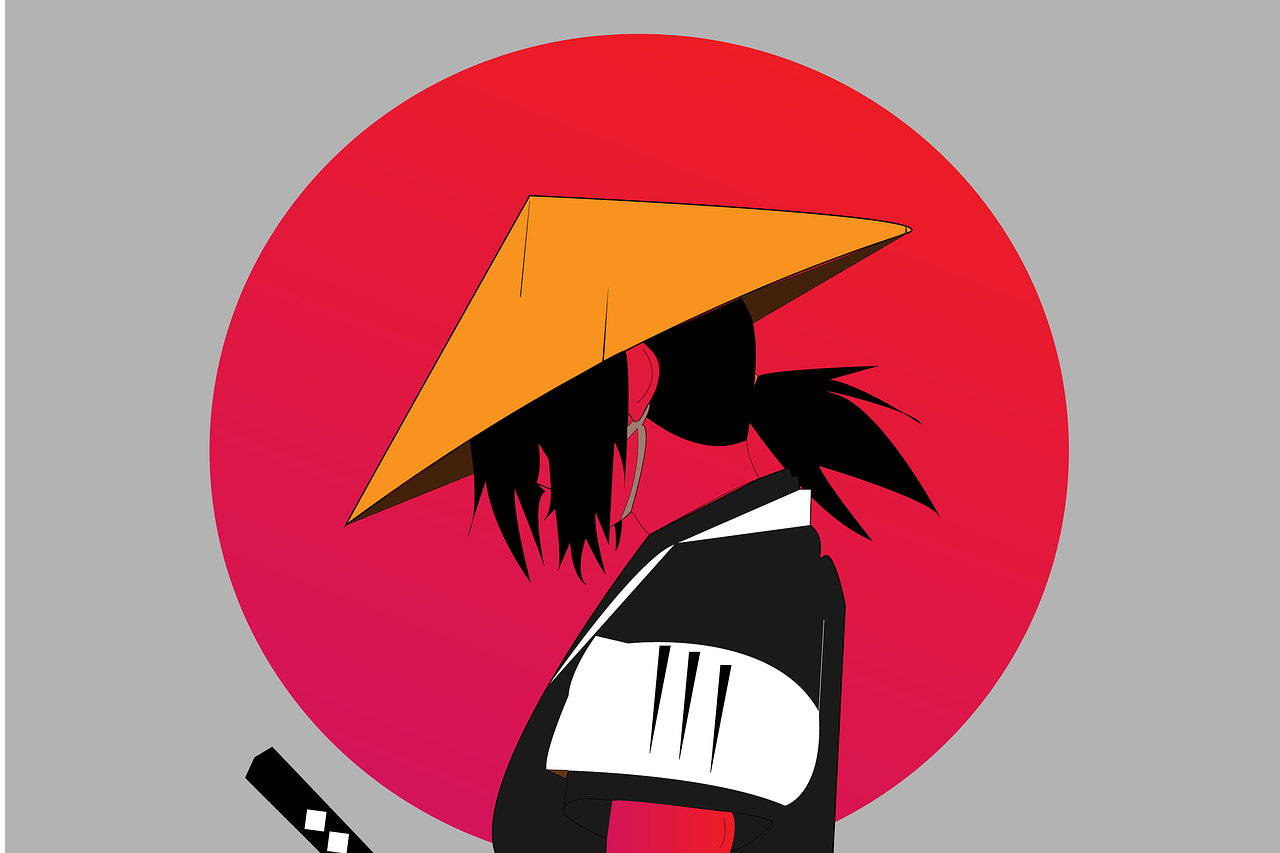Attack on Titan Ending: Where it Went Wrong
I’m a few months late writing this, but I only just saw the ending of Attack on Titan recently. It’s kind of crazy that a show I first saw when I was only just barely scratching the surface of young adulthood only now ended. And, of course, the ending left me with a lot of strong feelings.
Of course, those feelings can’t be properly discussed without first warning you about spoilers.
Spoiler warning: do not read if you haven’t finished the Attack on Titan ending.
Of course, if you can’t glean from the title that we’re going to get into spoilers in this article…I’m not sure what I can tell you.
Here are my thoughts in summary, and then we’ll get into each point in more detail.
Attack on Titan witnessed a pretty severe drop in quality following the time skip after season three. That was the beginning of the show derailing that would eventually culminate in the final episodes being what they were.
It felt like the end of the show really should have happened after season three, but instead a final season was tacked on with so much crammed into it that it felt thin.
The ending – while well animated and certainly emotional – felt unfulfilling, unsatisfying, and even nonsensical upon further reflection. And that’s not just because it wasn’t a happy ending.
Eren Yaeger is ultimately an unconvincing antagonist as the show doesn’t give enough clues he is a villain until too late in the game.
Themes of love are introduced in the very last minutes while the show has largely been devoid of them.
The timeskip sent Attack on Titan reeling into a downward spiral
When I first saw Attack on Titan, I’m quite certain it was unlike anything I’ve ever seen. Truly, it had taken Anime story telling to an entirely different and new place, and I’m not sure if we’ll ever see the likes of it again in the medium. It felt like, after years of Anime growing in popularity, here was a show that took its audience entirely seriously, and the insane animation quality and detailed storytelling lived up to that.
While that rings true for virtually every single episode throughout the first season, it could be said for the majority of the first three seasons. One cohesive story is being told during those episodes, and the world that is being built makes sense, and is not overly complex. Indeed, the most complex thing you have to know is some random weird mechanics around how Titans work. But in reality you can pretty much forget how those mechanics work and why who should eat who because the story still functions without intimate knowledge of Titan specific lore.
At the end of season three, we get the emotional payout we’ve been hoping for, finally discovering the mystery that is largely the impetus of the entire story up until that point.
And then the show goes off the cliff.
Divorced from the suffocating terror you feel in this small world protected behind the walls against imminent doom, and the mystery that drives the protagonist and reader forward, the show suddenly has to make up a ton of ground in trying to create an entirely new world and lore outside of the world it had already created. It also has to find new antagonists as Titans are no longer the big bad guys.
Doing all of this within the confines of a single season was going to be a tough task to begin with, and unfortunately, it would seem, the author simply wasn’t up to the task.
Season four is too jam packed with new information to follow
We’re going to get into the peculiarities of the final episodes and Attack on Titan ending in a moment, but it’s important to understand more context around the general issues with the final season before getting into what was wrong exactly with the ending.
Other than much of the conflict faced in season four feeling a bit artificial after the entire premise of the story is suddenly shifted right at the end, the result is equally difficult to live with. Suddenly, a relatively high concept story – easily graspable by the casual anime fan – becomes anything but. Now we are introduced into new factions, Titan powers, and characters and even worlds to explore in a final season that should have brought closure. Instead of doubling down on the things that worked in the story previously, Attack on Titan has to invent a new story where there really wasn’t one, and hope that its audience cares.
And while really hard core fans might tout themselves for being able to follow the increased complexity that came along with this sudden shift in narrative, a lot of us were just into the show because we liked watching humans try to survive against Titans, or because Mikasa is fun to watch twirling around killing things.
Now what’s get to what’s wrong with Attack on Titan’s ending
In many ways, the issues and flaws with Attack on Titan’s ending stem from these issues, and echo them to greater magnitude.
Just as entire new worlds are built late in the game, transitioning Attack on Titan effectively into a different story than it was before, entire new, massive plot devices are dropped within the last hour and thirty minutes of a show that we have been following with different degrees of loyalty for over a decade.
Out of nowhere, Mikasa is the savior of the world, Love is the single strongest force in the world (?) and we are supposed to be sympathetic with Eren Yeager’s successful attempt at widespread genocide because it’s gonna happen down the road anyways?
Attack on Titan’s ending fades into a thought experiment
Not only is the ending of Attack on Titan unsatisfying, it doesn’t make sense and it could also be misinterpreted pretty easily as supporting genocide in certain situations. It should have been made much more clear that genocide is wrong no matter the outcome. Because it clearly always is.
Instead of getting a look at the horrifying reality of what Eren has released on the world – countless real people being destroyed beyond recognition – we’re led to sympathize with him because the world is cruel, and at least our favorite characters (his friends) live on.
We’re supposed to be happy that his friends visit him at his grave the rest of their days, after he killed 80% of the people on the planet (a feat not equaled by even the most terrible villains in history).
In attempting to stay true to the horrors of the world, Attack on Titan slips into not a realistic tale of the evils humans are capable of, but instead a drab thought experiment too removed from actual reality to really mean much.
Instead of seeing the horrifying consequences of Eren’s actions, we witness a lot of dialogue in limbo worlds where characters explore weird philosophies about life that add up to no real insights in order to semi-justify Eren’s actions at least enough for us to be sad he and Mikasa aren’t together.
Eren is not a convincing antagonist
One of the things people like best about Attack on Titan is how Eren becomes the antagonist to his own story. While that is an interesting theme, ultimately it’s so flawed that it fails to be compelling. While Eren does certainly become the antagonist in the final season that becomes devoid of one (since the original reason for the show has ended – killing Titans), again it all happens so late in the game that it doesn’t feel real.
Like the idea of killing 80% of the world being somehow beneficial, Eren feels like a thought experiment of a good-guy turned bad guy. Not an actual real, believable bad guy.
Juxtapose him with another protagonist/antagonist from a popular anime – Light Yagami from Deathnote. Light is a fasinating character because we watch him slowly turn into a horrendous monster. And it’s quite clear that he’s a monster by the show’s ending, and he’s given the proper public crucifixion (figuratively) that he deserves. What makes this work is that we know from the very start that Light is a pretty creepy guy, and that what he is doing – while understandable – is definitely wrong by most widely accepted standards of morality.
What we don’t know, however, is to what depths he is capable and willing to go in order to achieve his goals. And that’s where a lot of the show’s intensity comes from.
Back to Attack on Titan – Eren is the total opposite of Light in that he is a true hero not only at the beginning of the show but throughout (until the fourth season). There’s no real hint or foreshadowing that he won’t continue to be a hero, either. So that when it happens, it feels tacked on and artificial.
Additionally, his reasons for being evil are convoluted and hard to grasp. He even states himself he doesn’t know why he did the things he did, making him further an unbelievable villain who just achieved unparalleled mass destruction.
Love shifts to the foreground after a show largely devoid of romance
Lastly, there’s something of an odd tonal shift that happens in Attack on Titan’s ending that causes us to feel unsettled. To me, it’s summed up in a single image – that of Mikasa kissing Eren’s decapitated head. Suddenly, the final, ultimate image is that of a kiss between Mikasa and a dead Eren. And yet, they’ve never openly stated their feelings for one another, and the underlying reason for why Mikasa feels what she feels for Eren has never been brought to the foreground. As a somewhat casual fan of the show (despite the fact I read the manga up until the anime equivelant of season four), I never actually knew what it was Mikasa felt for Eren. I guess she sort of says it at some point in the show but it’s not made into a huge deal.
Mikasa kisses decapitated Eren and breaks some vague spell on Ymir (don’t ask because the show doesn’t explain it)
And now, her love is somehow important to the lore?
Somehow it has parallels with how the founding titan felt about a king. As unbelivable as that love story was (the king chopped her up and ate her so I doubt she really would’ve loved him after that) it’s all a lot of odd lore that is never properly explained, and the image of Mikasa kissing Eren feels added in more for bizarre shock value than for value to the story.
Of course, then suddenly, out of nowhere, Eren and Mikasa’s love becomes the central point from which the closing moments of the show are formed.
Attack on Titan ending – the verdict
Ultimately, I could go on attempting to explain why the Attack on Titan ending didn’t work. However, the exercise would be futile because the answer to why it didn’t work is (unlike the increasingly complex world building and lore that added little to the story post time skip) simple – Attack on Titan’s ending doesn’t actually make sense.
And for all that, it doesn’t fail to elicit a strong emotion from viewers – especially those who, like me, have followed it in one degree of attention or another – since its beginning over a decade ago now.
While we certainly deserved better, we’ll still remember the good times. Because at their best, they really were the best.












